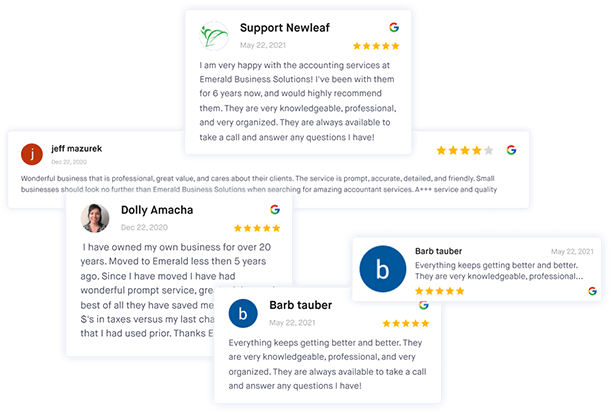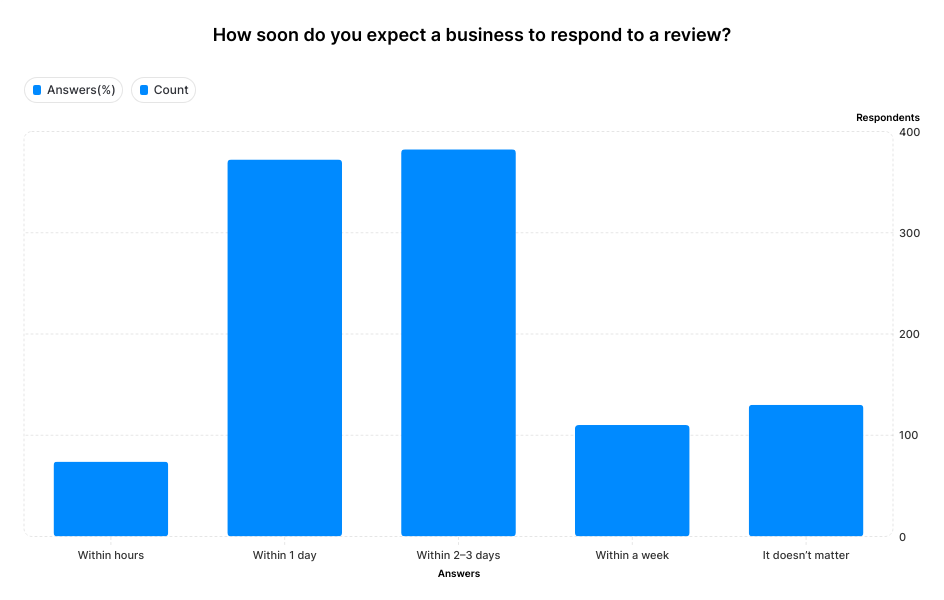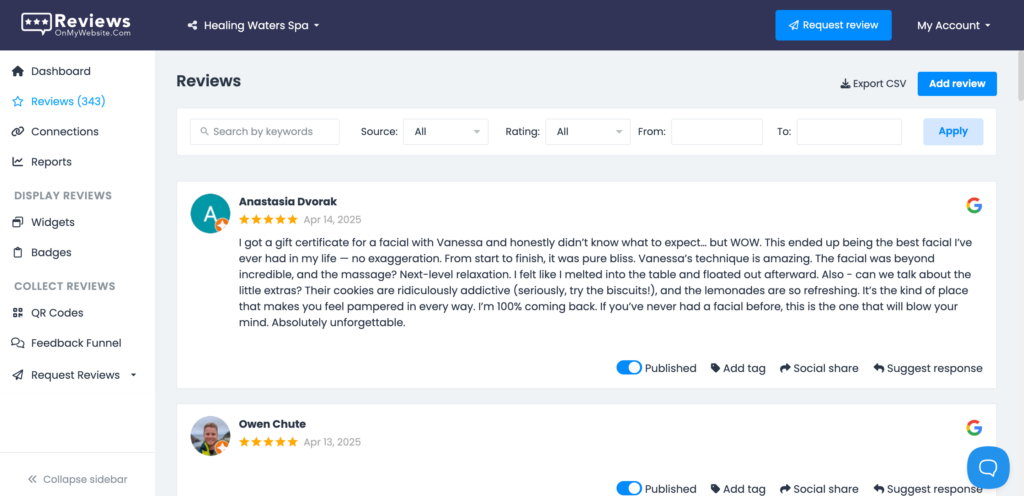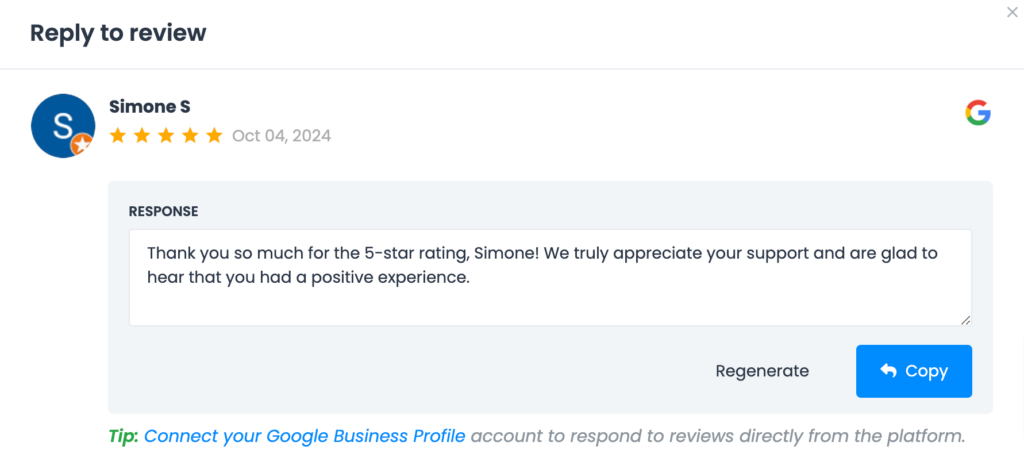Franchise marketing involves the promotion of a brand and all its franchise locations in a way that benefits both the parent brand and individual franchisees.
In this guide, we’ll go over the importance of franchise marketing, common challenges, and the most effective franchise marketing strategies you can use to grow a brand and its franchise locations.
Why franchise marketing matters
Effective franchise marketing allows for:
- Consistent brand recognition: Customers should get the same impression and experience of a brand regardless of which location they visit. An effective franchise marketing strategy uses consistent branding across all locations, building familiarity and making it easier for customers to recall your brand.
- Unified messaging: Franchises use consistent messaging adapted for local relevance, ensuring core brand values are clearly communicated across locations.
- Improved trust: Having consistent marketing across franchise locations signals that a brand is credible and reliable. And makes customers feel more confident about their purchase.
- Scalable growth: Having established, proven marketing processes and workflows make it easier to replicate success in new locations. This allows brands to expand more quickly without compromising on brand standards or quality.
- Franchisee support: Offering marketing guidance, resources, and tools to franchisees helps new franchises become successful more quickly. And allows franchisees to focus on operations while still implementing effective marketing campaigns.
National vs. local franchise marketing
Franchise marketing operates on two levels: national and local.
At the national level, the focus is on building brand awareness and setting the tone for the brand. This is done by the franchisor.
Franchisees are responsible for marketing on the local level. Here, the focus is on adapting the broad brand awareness efforts of the franchisor to engage local communities and drive local sales.
National level (franchisor)
The franchisor handles marketing at the national level. They send the brand guidelines, develop high-level campaigns, and strive to ensure consistent messaging.
Additionally, they also provide franchisees with the training, creative direction, and marketing assets needs to execute successful marketing campaigns.
Their focus is on building broad brand awareness and executing major product launches and nationwide promotions.
Local level (franchisees)
Franchisees execute marketing campaigns aimed at their local communities. This might include running ads, optimizing their website for local search, or participating in local events.
While franchisees have to follow brand guidelines, they’re usually allowed to create location-speciifc promotions or highlight local causes they support.
Common challenges in franchise marketing
The most common challenges in franchise marketing include:
- Maintaining brand consistency: Franchisees in different locations can interpret brand guidelines differently, which results in inconsistent messaging.
- Communication gaps: A lack of alignment between the franchisor and franchisees can often result in underperforming campaigns.
- Market differences: Promotions and messaging that are effective in one location may not perform as well in other locations.

Manage your franchise business's reviews with ReviewsOnMyWebsite
Get more 5-star reviews and take control of your online reputation with ReviewsOnMyWebsite.
11 proven franchise marketing strategies
Here are 11 franchise marketing strategies you should try to drive more brand awareness and customers.
1. Optimize for local search
Local search engine optimization (SEO) ensures potential customers are able to find each franchise location easily when performing a local search.
The first step to improving local SEO is optimizing each location’s Google Business Profile by adding accurate business information, such as a physical address, phone number, and hours.
It’s important that each location uses consistent NAP (Name, Address, Phone number) information across online directories. This will help show both search engines and users that a business is legitimate and trustworthy.
You should also strive to create localized landing pages for every location, with each page targeting a location-specific keyword.
Here, it’s important that every page features unique, location-specific content—don’t simply reuse the same content for every location.
2. Run geo-targeted PPC campaigns
Experiment with running pay-per-click (PPC) advertising campaigns targeting specific locations.
This way, you’re able to hyper-personalize your messaging, which helps with reducing your cost-per-click (CPC) and allows you to get a better return on your ad spend.
Franchisees can target users in their ZIP code. At the national level, franchisors can use PPC ads to improve brand awareness and promote seasonal campaigns.
3. Leverage social media
For franchise businesses, a dual social strategy with both national and local accounts often works best.
The national account can focus on sharing big-picture brand stories, network-wide campaigns, and product launches.
And local accounts can focus on engaging with their local communities, sharing local events, or running location-specific contests.
4. Build a centralized content library
A centralized content library can save time for both the franchisor and the franchisees. Here, you can store brand-approved images and videos, social media templates, or promotional graphics.
These could be hosted in Google Drive or a dedicated digital asset management (DAM) system.
A centralized content library streamlines access to approved assets, strengthens brand consistency, and speeds campaign launches.
5. Encourage and manage online reviews
A strong online reputation builds trust and boosts local search rankings. Both franchisors and franchisees should actively manage and seek more reviews.
When it comes to managing online reviews, it’s important to reply to every customer review you get, regardless of sentiment. This should also be done as quickly as possible, since consumers expect businesses to reply to reviews within three days.

Here’s how to go about replying to reviews:
- Positive reviews: Thank the customer for the review and invite them to visit your business again. Try to personalize the reply by addressing the customer by their name and mentioning a detail from your interaction with them.
- Negative reviews: Acknowledge the customer’s frustration and apologize. Invite them to discuss the matter in private and offer to make things right (e.g., through a refund or a do-over).
Pro tip: You can use ReviewsOnMyWebsite to monitor the web for reviews of your business and get notified as soon as a new review is posted.
And read and reply to all the reviews from the platform’s review feed.

There’s also the option to use AI to generate personalized replies in seconds.

Apart from replying to existing reviews, it’s also important to consistently work on generating more reviews. This will help you have a strong review profile and signal that your business is trustworthy.
The best thing you can do to ensure more reviews is to make it as easy as possible to leave a review for your business.
One way to do this is by creating a Google review link you can share with customers.
Alternatively, you could create a QR code that leads directly to your review page. And then add it to your receipts or printed marketing materials.
You can also automate review requests with ReviewsOnMyWebsite. It allows you to set up automated email and SMS campaigns to request reviews from customers.
This ensures that every customer gets asked to leave a review. And helps you get reviews on autopilot.

Manage your franchise business's reviews with ReviewsOnMyWebsite
Get more 5-star reviews and take control of your online reputation with ReviewsOnMyWebsite.
6. Use video marketing to build trust
Franchise businesses can use video marketing to build trust and awareness at both the national and the local level.
At the national level, brands can work on creating product showcasing videos and relevant how-tos.
At the local level, franchisees have the opportunity to create and share video testimonials, behind-the-scenes clips, and event recap videos.
7. Email & SMS marketing campaigns
Email and SMS campaigns are some of the most cost-effective ways for franchise businesses to reach customers.
Here, it’s important to segment your contact lists by location to ensure that customers only receive promotions that are relevant to them.
At the national level, brands can send newsletters and brand updates, or notify customers about important product launches.
Franchisees, on the other hand, can create email and SMS campaigns notifying customers about limited-time offers, seasonal promotions, or upcoming events.
8. Host & sponsor local events
Hosting and sponsoring local events can help you build brand awareness and attract foot traffic.
For example, you could sponsor a local sports team or host a charity fundraiser.
Make sure to promote the events via your social media channels, email list, and local media.
9. Referral and loyalty programs
Referral and loyalty programs can help you reward your loyal customers and attract new ones.
You can implement a points-based loyalty program or offer discounts to customers for any new referrals they bring in.
And promote both programs via email and SMS campaigns, on receipts, or at checkout.
10. Partnership marketing
For franchisees, partnering with other local businesses can create a win-win situation where both parties benefit. For example, a fitness franchise could partner with a smoothie shop for a cross-promotion.
Here, you want to look for non-competing businesses that have a similar target audience.
Reach out to these businesses and pitch to run joint social media giveaways, offer discounts, or co-sponsor events.
11. Franchise development campaigns
Brands can attract new franchisees by creating dedicated landing pages that highlight investment opportunities, training programs, and success stories from existing franchisees.
Webinars and video interviews with successful franchisees are other ways you can generate more interest.
Succeed with franchise marketing
Using the strategies outlined above can help you grow a franchise business at both the national and local level.
Start by picking 2-3 strategies from the list and plan to implement them next quarter.
While you’re here, make sure to also check out our list of the top AI marketing tools.